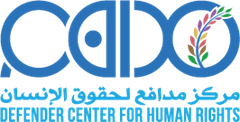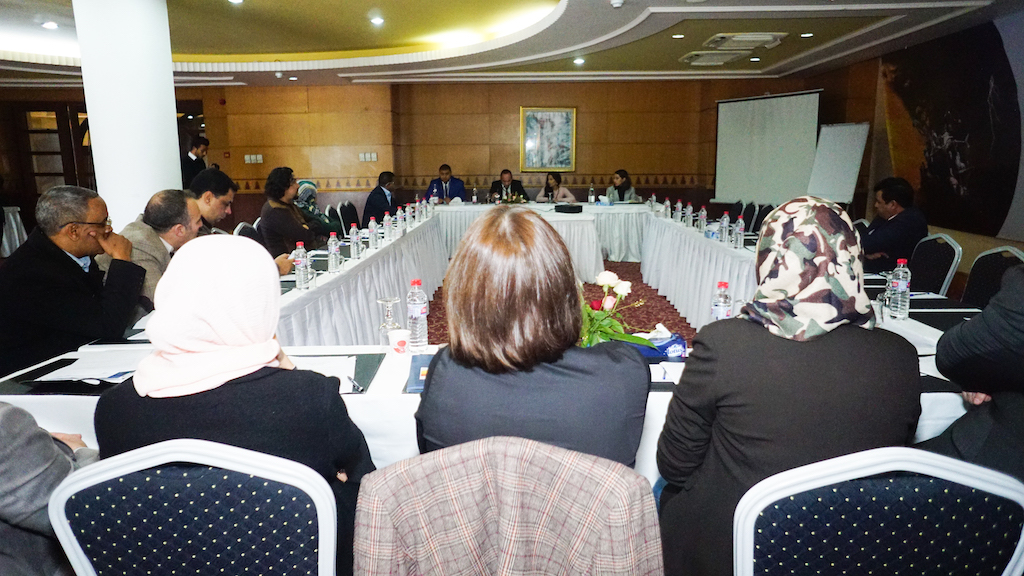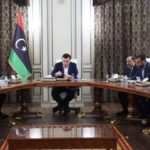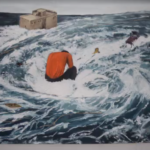Recommendations : irregular migration on the human rights and judicial levels
DAAM recommendations on the issues of irregular migration on the human rights and judicial levels
During two days the 8th and the 9th of December 2018 and in a partnership with “Defender Center” and Tanarout organization, DAAM center organized an international conference on the issues of “Irregular migration on the Human Rights and judicial levels” with the participation of human rights organizations from 10 countries. The forum was rich and fruitful with the participation of a group of experts in the region. The second day was devoted to discussing the participants’ outputs and recommendations.
The following is a list of propositions that have been categorized according to the themes of the forum:
Panel 1: The definition of irregular migration and human rights and judicial mechanisms on the international and national level:
Not to criminalize migration and working on promoting the concept of safe migration.
Emphasize the distinction between refugees and migrants that many countries are doing in order to evade international obligations towards refugees.
Provide the necessary guarantees to promote the concept of safe migration by placing obligations on States through a set of appropriate mechanisms, procedures, and policies.
To increase knowledge production on migration issues at the conceptual, legal and human rights levels.
Amend legislation to make the judiciary the only source of deportation decisions, but not to forcibly return the migrant to his or her home country.
Urge the signatories to the agreements relating to migration to ratify them and activate their provisions as well as the non-signatory states to sign and ratify these agreements.
To adopt more severe penalties on migrant smugglers in various national legislation.
Activating the mechanisms of the local judiciary in order to deal with the phenomenon of human trafficking.
To ensure that migration laws and regulations in national legislations are compatible with recognized international mechanisms.
Work on putting centers of detention under judicial supervision.
To ensure that migrants are not kept inside detention centers as soon as the procedures of the investigators regarding immigration applications are completed.
Panel 2: International policies of irregular migration:
Assist the transit countries by the international community, especially those suffering from armed conflicts.
We call upon the countries of the world to adopt the Marrakech Charter on Regular Migration and respect its articles as a minimum.
Try to provide food security for migrants.
To ensure that migrants are not forcibly returned to their countries.
To increase the efficiency of individuals and institutions working in the investigation of migration applications on a continuous basis through the necessary trainings.
Work on the return of rescue boats suspended from its work and call the international community to support its return with an increase in the number of vessels for rescue operations, and condemnation of the actions taken by some European countries, “Italy”, which caused obstruction and stop the international rescue operations in the Mediterranean.
Work to stop operations in the high seas aimed to return refugees and migrants to the countries that they fled from and work to not let them stay in unsafe countries.
Encouraging the media to adopt a human rights discourse on the issue of migration and migrants, with emphasis on the rejection of racism, discrimination and hate speech in the media.
Work to establish access to information for migrants.
Establish a network or alliance of associations and organizations participating in DAAM international forum with the importance of strengthening relations with Human Rights and humanitarian organizations, European and international governments supporting the rights of refugees and migrants, which call for or adopt humanitarian policies towards them.
To highlight the work of local organizations working in the area of migration.
To promote literature and arts that deal with migration issues and to display the human suffering that causes this phenomenon.




Leave a Reply
Want to join the discussion?Feel free to contribute!